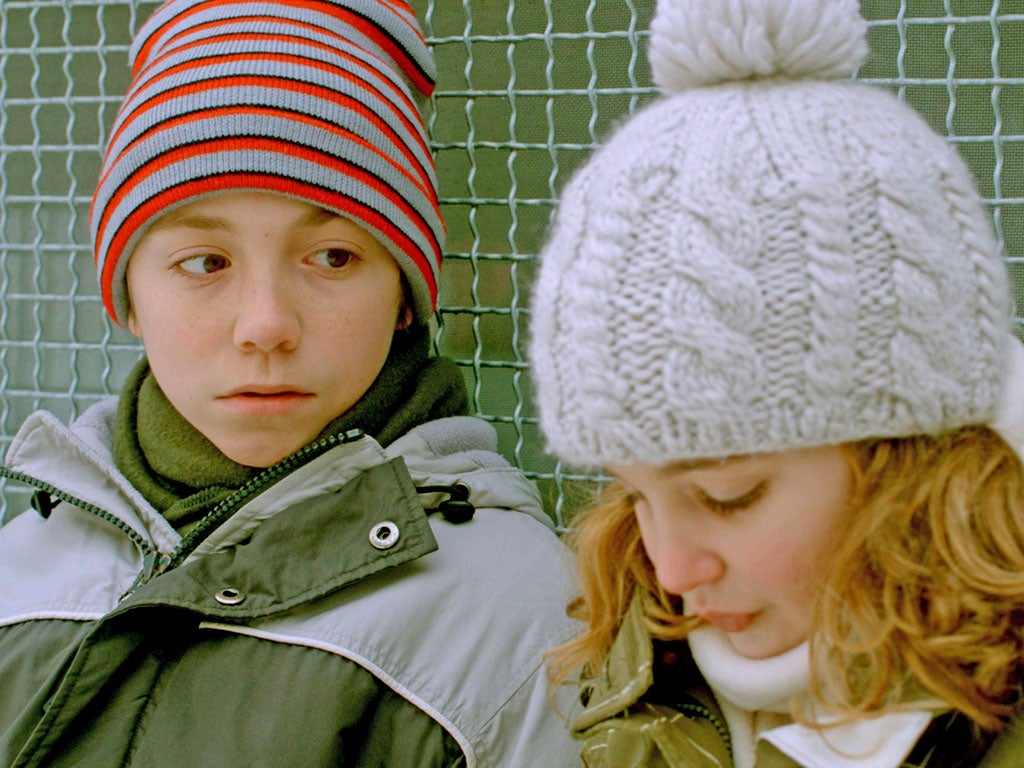Monsieur Lazhar (12A)
Philippe Falardeau, 95mins. Starring: Mohamed Fellag, Sophie Nelisse

Philippe Falardeau's Monsieur Lazhar was nominated for Best Picture in a Foreign Language at this year's Academy Awards, losing out to the Iranian A Separation.
Though the social and political context of the two films is quite different, you can detect surprising resonances between them. They both address issues of guilt and grief and responsibility; even more intriguingly, they set the individual conscience against the interfering machinations of state law. French-speaking Montreal is certainly not Tehran, yet both films examine the way a country's legal system may constrict and undermine the integrity, and indeed the humanity, of its citizens.
Monsieur Lazhar, while a less fraught and subtle film than A Separation, has something that any social-issue picture needs, namely, a heart. Loosely adapted from a play, its starting point is an act we don't see by a character we never meet. The scene is a junior school in Montreal one winter morning. A class of 11- and 12-year-olds are about to leave the playground to begin lessons. One of their number, Simon (Emilien Néron), is on milk duty and goes on ahead of the others: on reaching the classroom he peeks through the door – and sees their teacher hanging from a ceiling pipe, dead. He raises the alarm, and the staff manage to head off the other children – all but one, Simon's friend Alice (Sophie Nélisse), who also steals a glimpse at the body.
Her suicide shocks the local community, makes the paper, and ensures that nobody applies for the vacant position. And then someone does, a fiftyish Algerian immigrant named Bachir Lazhar (Mohamed Fellag), who turns up on spec at the principal's office and talks his way into the job. With his smiling, old-fashioned courtesy Monsieur Lazhar is rather fascinating to his pupils ("Bachir means 'bearer of good news'," he tells them), though they don't immediately warm to him. He rearranges their desks from a semicircle into straight rows, and for dictation recites from Balzac – "prehistoric", as one pupil calls it – a choice he himself later admits was misguided. He's not too confident with spoken English, and his Algerian French is apparently rather different from the Quebecois.
But what really stands between them is the ghost in the classroom – Martine, their late teacher – and the closed-door counselling that the school has arranged for the traumatised pupils. (It's closed-door to the audience, too). Into this void MLazhar tries to pour a little balm, knowing that the suicide was an inexplicable act of aggression (why did she choose the classroom for her farewell?) and yet moved to assuage feelings of confusion and remorse it may have provoked in his young charges.
It has certainly got under the skin of Simon, whose difficult relationship with Martine, gradually disclosed, has somehow alienated him from Alice, the only pupil in the class to deal head-on with their loss. Her spoken composition on Martine's death is perhaps more sensible and honest than any adult could be, but when Lazhar asks the principal (Danielle Proulx) if he may distribute it to the children's parents she flatly refuses.
This happens to be symptomatic of a larger stand-off between parents and administrators, which effectively renders the teachers powerless. An atmosphere of suspicion prevails. There's strictly no touching of any kind in class – not a clip around the ear, not a pat on the shoulder, certainly nothing as extravagant as a hug – otherwise there'll be lawsuits till Doomsday. As one teacher puts it, staff are obliged to handle pupils "like radioactive waste".
It's an eye-opener on Canada's educational system, this, much as Laurent Cantet's The Class shone a light on the French. Falardeau's film asks the right question – how will educators be allowed to inculcate standards of civilised behaviour if their hands are tied? – yet it never allows the political infighting to cloud the personal dramas going on. Lazhar turns out to have a secret of his own, involving the reason why he sought political asylum from Algeria years ago. When a fellow teacher invites him round for a get-to-know-you dinner, we feel the tension of that secret, and all the pathos of his inability to express it. This is partly echoed in Alice, a girl made lonely by her absent mother (she works for an airline) but also by her too-obvious precocity among classmates.
Sophie Nélisse gives a remarkable turn here, as self-contained as an adult yet with a child's vulnerability to doubt. It's a sensitivity that makes her such an ally of Lazhar, himself brought wonderfully to life in Fellag's performance; the grave twinkle we see in him suggests a happy man brought low by tragic circumstances, both in exile and in his former life as a political dissident. How he keeps his facade of good cheer is a mystery the film honours to the last.

Watch Apple TV+ free for 7 days
New subscribers only. £8.99/mo. after free trial. Plan auto-renews until cancelled

Watch Apple TV+ free for 7 days
New subscribers only. £8.99/mo. after free trial. Plan auto-renews until cancelled
Falardeau, despite handling weighty questions, moves the film along with an unfussy grace and a bright sense of location. (Really bright – I've never seen such clean reflective surfaces in a school before). It's a rare achievement to keep such a sympathetic balance between a child's view of schooling and an adult's; rarer still to lend it such wit and warmth. "A classroom," says Lazhar, "is a place of friendship, of work, of courtesy – yes, courtesy." In that moment you hear the true gentleman, and the great teacher you never had.
Subscribe to Independent Premium to bookmark this article
Want to bookmark your favourite articles and stories to read or reference later? Start your Independent Premium subscription today.

Join our commenting forum
Join thought-provoking conversations, follow other Independent readers and see their replies